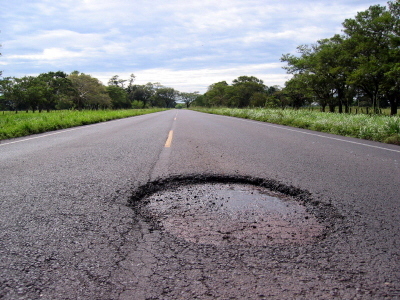This week has been one of reflection on our nation’s bridges, potholes and transportation needs and planning needed to best address these needs at the state level.
An article in USA Today featured the progress being made, thanks to the attention towards our nation’s bridges. ARTBA reported that nearly 10 percent of the country’s bridges last year were considered structurally deficient and needed repairs. This is progress from 2014, but there is still a ways to go to get to the 8% by 2020 that the Report Card for America’s Infrastructure recommends.
Bridges are not the only concern for drivers. A new study from the American Automobile Association said that pothole damage cost U.S. drivers $15 billion in vehicle repairs over the last five years. “The problems range from tire punctures and bent wheels, to more expensive suspension damage,” John Nielsen, AAA’s managing director of automotive engineering and repair, said in a statement. According to the study, two-thirds of Americans are concerned about potholes on local roadways—further evident in Ford’s announcement of pothole protection technology—and the average American driver pays around $300 to repair pothole damage.
Bridges and roads are critical to our nation for more than personal safety; they also play a huge role in supporting our nation’s businesses. MBA Central recently released an infographic breaking down how the latest surface transportation bill, the FAST Act, impacts our nation’s businesses. The infographic addresses how each category of infrastructure, as categorized in ASCE’s infrastructure report card, plays into the day-to-day productivity of businesses.
Because infrastructure plays such a supporting role in our day-to-day lives and the overall economy, states continue to craft ways to fill in the gaps where the FAST Act is not providing enough funds to repair their infrastructure. For example, lawmakers in Delaware are proposing a 10-cent gas tax increase, Nebraska is proposing an infrastructure bank, and Tennessee is adopting a 25-year, $8.5 billion transportation plan to cover infrastructure costs.
While these state-level steps are encouraging, it is still important that elected leaders at the federal level continue to prioritize investment into the backbone of our economy. As Vice President Biden has been saying all week, we need good infrastructure to keep America competitive.
